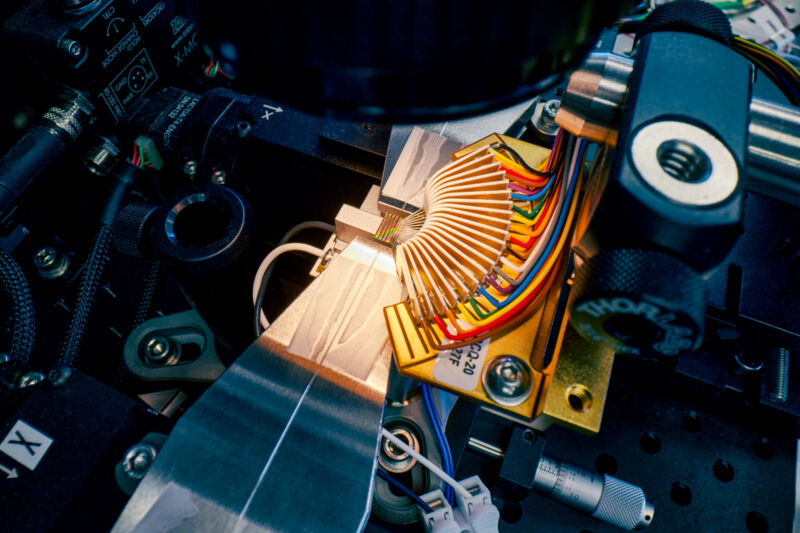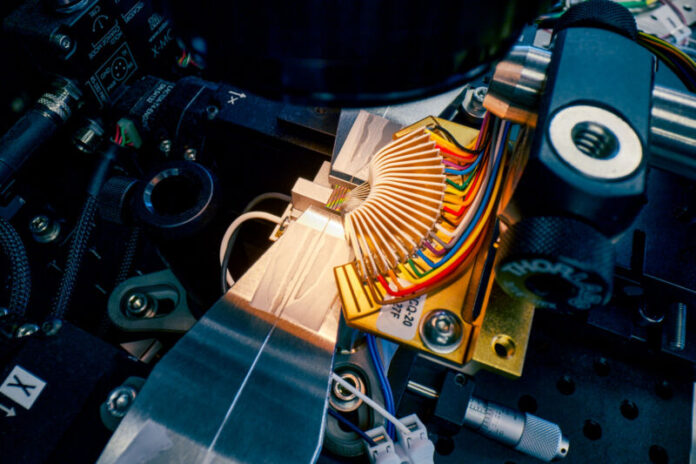
Last month, physicists at Toronto-based startup Xanadu published a curious experiment in Nature in which they generated seemingly random numbers. During the pandemic, they built a tabletop machine named Borealis, consisting of lasers, mirrors, and over a kilometer of optical fiber. Within Borealis, 216 beams of infrared light bounced around through a complicated network of prisms. Then, a series of detectors counted the number of photons in each beam after they traversed the prisms. Ultimately, the machine generated 216 numbers at a time—one number corresponding to the photon count in each respective beam.
Borealis is a quantum computer, and according to the Xanadu researchers, this laser-powered dice roll is beyond the capability of classical, or non-quantum, computing. It took Borealis 36 microseconds to generate one set of 216 numbers from a complicated statistical distribution. They estimated it would take Fugaku, the most powerful supercomputer at the time of the experiment, an average of 9,000 years to produce a set of numbers from the same distribution.
Read 16 remaining paragraphs | Comments
Ars TechnicaContinue reading/original-link]




